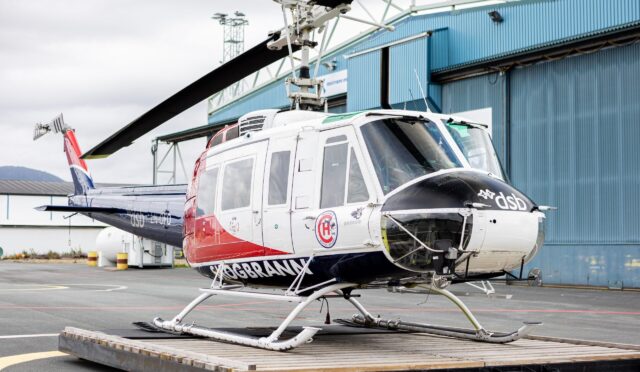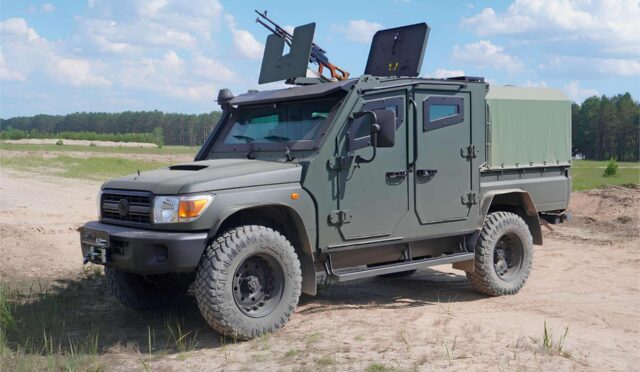Israeli Counter-Drone Systems: Top Technologies Revealed
In a recent demonstration, the Israeli Ministry of Defense showcased its commitment to countering the growing threat of unmanned aerial vehicles (UAVs). The trial lasted several months and involved approximately 20 advanced counter-drone systems from nine local manufacturers. This initiative began in October 2024 and concluded last week, marking a significant step in Israel’s defense strategy against aerial threats.
Among the systems tested were innovative solutions, including gun-based technologies equipped with 30mm cannons designed specifically to neutralize hostile drones. Additionally, other systems utilized interceptor missiles or employed large nets to capture UAVs, demonstrating a diverse array of approaches to addressing this evolving threat.
Multiple Threats Demand Advanced Solutions
Israeli Defense Minister Israel Katz emphasized the complexity of the UAV threat, describing it as an evolving danger that spans multiple combat arenas. He pointed out the heavy human toll that these aerial threats have already inflicted, which has driven the ministry to mobilize all available resources to develop effective countermeasures.
Notable companies participating in the demonstration included Elbit Systems, Rafael, and Israel Aerospace Industries (IAI), each contributing their unique technologies to combat aerial threats. This collaboration highlights the importance of innovation and adaptation in the face of changing warfare dynamics.
Innovative Technologies on Display
Elbit Systems, one of the key players in the demonstration, presented a range of advanced counter-drone technologies. Among these was a radar-guided interceptor drone capable of neutralizing not only UAVs but also incoming missiles. This versatile system showcases the potential for multi-threat engagement in modern defense.
IAI introduced an autonomous spatial system that manages drone threats by analyzing specific signals of interest. Meanwhile, Rafael showcased its Mini Typhoon remote-controlled weapon system, designed to engage aerial threats effectively at medium ranges. Each of these technologies reflects a proactive approach to addressing the complexities of modern aerial warfare.
Diverse Range of Solutions Tested
The demonstration featured a variety of solutions beyond those from the major players. Airobotics presented reusable interceptors, while Tamar Group introduced an automatic rapid-fire projectile system. General Robotics showcased a machine-gun-based interceptor, and Elisra demonstrated a net-deploying interceptor drone. This diverse range of technologies highlights the innovative spirit within Israel’s defense industry.
Each of these systems was evaluated for its effectiveness in real-world scenarios, providing valuable insights into their capabilities and potential applications in active defense operations.
Final Evaluation in the Negev Desert
The final demonstration took place in the Negev Desert, attended by top defense officials and industry representatives. This expansive testing location allowed for comprehensive evaluations without risking civilian safety, creating a realistic environment for assessing the various systems.
Evaluators assessed the technologies’ capabilities to engage threats at different ranges, speeds, and altitudes, ensuring a thorough understanding of each system’s operational potential.
Anticipation for Funding Decisions
Following the conclusion of the demonstrations, the Israeli Ministry of Defense announced plans to analyze the experimental results in detail. The intention is to select several technologies for accelerated development and manufacturing.
While specifics regarding the number of systems to be fully funded and the timeline for announcements remain undisclosed, the ministry has emphasized the urgency of funding to support the rapid deployment of new operational capabilities.
The Future of Israel’s Defense Strategy
As the threat landscape continues to evolve, Israel’s focus on developing advanced counter-drone technologies is crucial. The successful demonstration of these systems represents a strategic investment in national security and the protection of its citizens.
The forthcoming decisions on funding will likely shape the future of Israel’s defense capabilities, reinforcing its position as a leader in counter-drone technology.
Collaboration and Innovation at the Forefront
The collaboration among various Israeli defense companies during this trial underscores the importance of innovation in addressing modern security challenges. By pooling resources and expertise, these companies are poised to create cutting-edge solutions that can effectively counter emerging aerial threats.
This collective effort not only enhances Israel’s defense capabilities but also positions it as a significant player in the global defense industry.
Global Implications of Counter-Drone Technologies
The advancements in counter-drone technologies developed in Israel could have broader implications for global security. As UAVs become more prevalent in military and civilian applications, the need for effective countermeasures will be critical for nations worldwide.
Israel’s experience and innovations in this field may serve as a model for other countries seeking to enhance their defenses against similar threats.
Conclusion: A New Era of Defense
In conclusion, the Israeli Ministry of Defense’s recent counter-drone demonstration marks the beginning of a new era in aerial defense strategies. With a focus on innovation, collaboration, and rapid deployment, Israel is set to enhance its capabilities against evolving threats.
As the world watches, the outcomes of this initiative could not only redefine Israel’s defense posture but also influence global approaches to countering the pervasive challenge of UAVs.







